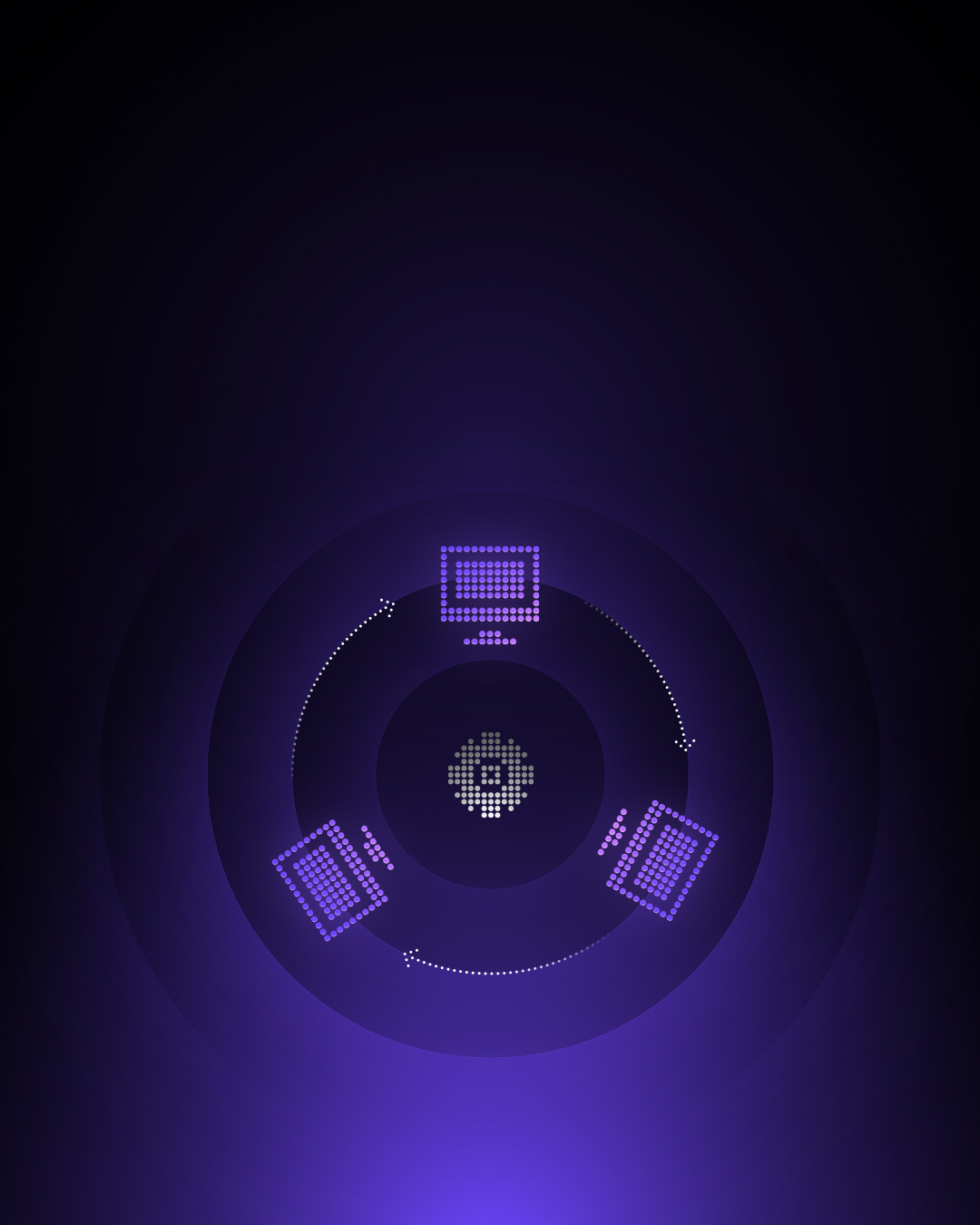
Decentralized Confidential Computing (DeCC) is emerging as a groundbreaking advancement in Web3, bringing the power of confidential computing to the blockchain.
At the forefront of this is Arcium: the global supercomputer for a hyper-encrypted internet.
Arcium leverages advanced Multi-Party Computation (MPC) to deliver secure, scalable, and versatile encryption solutions for decentralized projects and networks of any type, as well as for traditional Web2 firms as well. It relies upon Arcis, a Rust-based programming language paired with a powerful compiler to support different MPC protocols.
In this piece, we will cover:
- Confidential Computing: Explanation of confidential computing and its importance in data security.
- Arcium Architecture Overview: Introduction to the Arcium Network and its foundational structure.
- DeCC Technologies: Comparison of MPC, FHE, TEEs, and ZKPs within the Arcium framework.
- Trustless MPC Encryption: A breakdown of Arcium's architecture and its secure, scalable computing.
- Real-World Applications: Examples of Arcium’s use in AI, DeFi, and other sensitive data projects.
Confidential Computing
Traditional computing systems, while often securing data at rest and in transit through encryption, still face critical vulnerabilities when handling data in use. This gap has led to costly cyber attacks, which Arcium addresses by enabling encrypted computation on in-use data, ensuring security at every stage.
Confidential computing addresses these vulnerabilities by enabling the secure storage and processing of sensitive data without exposure.
In the context of Web3, transparency (a core strength) also limits the industry's ability to handle sensitive data which is crucial for scaling the industry.
DeCC overcomes this by integrating blockchain technology with advanced cryptographic techniques, including Multi-Party Computation (MPC), Trusted Execution Environments (TEEs), and Zero-Knowledge Proofs (ZKPs). These technologies facilitate secure, private computation on blockchain networks, unlocking new possibilities in finance, healthcare, and other fields where data privacy and security are essential.
Bringing encryption on-chain has numerous benefits:
- Comprehensive Privacy: Ensures confidentiality over user identities, transaction amounts, and other sensitive data. This safeguards sensitive data fields like those found in network mempools and the data fields used to update the network's state during transit.
- Prevention of Manipulation: By maintaining full transaction privacy, forms of manipulation such as front-running and sandwich attacks are prevented.
- Regulatory Compliance: Alignment with data protection and privacy regulations across various jurisdictions.
This is exactly what Arcium does.
The Arcium Network is a global supercomputer providing trustless access to encrypted, verifiable, and performant computing power.
This is because the Arcium Network has many individual computers (known as “Arx Nodes”) working together to perform encrypted computations. This design ensures trustless access, meaning that no central authority is needed for verification, while computations are both verifiable and highly performant (as many Arx Nodes are computing separate pieces of a single computation in tandem).
The name is derived from Latin, where "Arcium" is the plural form of "arx," meaning "of the fortresses." This symbolizes our network of secure, fortified nodes, each individually known as an "Arx." The naming emphasizes the strength and resilience of each node being part of the decentralized and cooperative Arcium Network, much like fortresses within a fortified city.
DeCC Technologies: MPC, FHE, TEE, and ZKP
There are currently many players in the confidentiality space.
What differentiates Arcium?
We used the best encryption technique (MPC) and made it hyper-scalable and flexible. To appreciate MPC’s advantages, first consider three alternatives:
- Fully Homomorphic Encryption (FHE): FHE enables mathematical operations on encrypted data without decryption, maintaining encryption throughout the data’s journey for enhanced security. However, due to its high computational complexity, current FHE implementations struggle with cost and performance and can only handle about 5 transactions per second (TPS). Significant improvements are still many years away.
- Trusted Execution Environments (TEEs): TEEs decrypt and compute transactions within a secure, isolated environment, offering high-performance and production-ready solutions. While great in theory, in practice, TEEs have been repeatedly proven vulnerable to side-channel attacks where attackers can potentially deduce secret keys through sophisticated methods.
- Zero Knowledge Proofs (ZKPs): ZKPs allow one party to prove the truth of a statement to another without revealing any specific information, maintaining confidentiality. Although effective at verifying off-chain computations, they are not suitable for shared state systems, such as blockchains, where multiple parties need to interact simultaneously with the same encrypted state.
Arcium uses Multi-Party Computation (MPC) which allows multiple parties to jointly compute a function while keeping their inputs private. It’s the gold standard for confidential computations, providing scalability, speed, low cost, and flexibility.
The main drawbacks are around:
- Large-Scale Computations: Limitations around input/output (I/O) operations make it challenging to simultaneously handle a large number of transactions that can occur with many network participants.
- Risk of Collusion: Although this risk varies for different MPC security designs, having anonymous MPC nodes means that there is the potential for collusion.
However, both are mitigated through Arcium’s innovative architecture, which we’ll cover next. For more context around Arcium's vision and potential applications, read our article titled "Arcium in 1000 Words."
Arcium: Trustless MPC Encryption

The network’s architecture is designed to function as a global supercomputer, where every Arx Node serves as a computational core. Together, these nodes form clusters that execute Multi-Party Computation (MPC) tasks securely and efficiently.
The design is highly flexible, able to quickly integrate and bring computation over encrypted data to a wide range of Web2 and Web3 use cases, including:
- Artificial Intelligence: Protecting sensitive data in AI applications, especially when models are trained using sensitive data or multiple datasets are used without sharing raw data.
- DeFi: Providing full privacy and security for an otherwise fully transparent DeFi ecosystem, enabling financial institutions to arrive on-chain.
- DePin: Protecting decentralized physical networks, such as IoT devices where sensitive data is collected and processed.
Other potential areas exist, including identity management, supply chain management, confidential voting systems, sensitive data (e.g. healthcare), and private marketplaces.
The architecture is composed of several key elements:
- Computation Customers: Parties paying for confidential computation, such as developers or enterprises.
- Multi-Party eXecution Environments (MXEs): Dedicated MPC environments set up for each Computation Customer. These are highly configurable based on custom needs.
- Arcis is our Rust-based programming language that makes the above possible, with a powerful built-in compiler that supports various MPC protocols.
- ArxOS: Arcium’s execution engine, representing a distributed operating system that on the backend consists of Arx Nodes. Each node provides computational resources to execute computations defined inside MXEs.
- Clusters: Groupings of Arx Nodes that collaboratively compute using MPC technology.
Arcis provides a unified, familiar programming interface paired with a powerful compiler that supports the compilation of different MPC protocols.
To put this together: MXEs are MPC environments running computations for various users (“Computation Customers”), with computations handled by Clusters that are each composed of groups of nodes (“Arx Nodes”).
This design looks as follows:

Let’s look at each a bit more closely.
A) Computation Customers
Computation Customers create a custom computation environment (MXE), configuring settings such as their desired level of security and selecting one or more Clusters to run their computations. By choosing multiple Clusters, customers ensure greater reliability, as tasks can be rerouted to another Cluster if one becomes unavailable, maintaining seamless execution.
For example, a Computation Customer requiring a greater level of security could select a Cluster with a greater number of Arx Nodes, thereby increasing security and fault tolerance.
Arcium’s default is a Dishonest Majority Protocol, meaning that only a single node must be honest in order for things to proceed as normal.
B) Multi-Party eXecution Environments (MXEs)
Typical MPC solutions are limited in scalability and composability.
While Arcium solves for both, scalability is addressed by having dedicated MPC environments called MXEs, which compartmentalize computations. By isolating computations, tasks are processed independently, allowing for parallel processing and high network security guarantees in the event of any attack. These are highly configurable, meaning security tolerance, encryption schemes, data provisioning and handling, and more can be selected. For example, a project with simple computational needs might benefit from a lightweight encryption scheme.
c) Arx Nodes
Arx Nodes form the Arcium network and are responsible for executing computational tasks.
While permissionless, eligible Arx Nodes must meet specific hardware requirements and staking requirements to participate. Staking is just one of many tools to guarantee network security, while hardware requirements ensure high network performance.
Users can delegate their tokens to Arx nodes. The amount of stake correlates with the node’s ability to perform work, meaning that parties with “more at stake” may contribute more to the network.
d) Clusters
A group of Arx nodes forms a Cluster, which collectively executes MPC tasks.
Grouping Arx nodes is beneficial from a security and fault tolerance perspective, as computations can continue even in the presence of malicious parties or failed nodes.
It also allows for customization, as various trust assumptions can be supported. For example, low-trust models (e.g. dishonest majority) are highly secure but less performant than a high-trust model (e.g. honest majority), which has a higher trust assumption but improved performance.
Seeing Arcium In-Action
Consider any AI or DeFi application who might wish for:
- Regulatory compliance for peace of mind and institutional adoption
- User privacy for potentially sensitive data
- Increased security without additional audits
- MEV protection for better value-capturing
These could all be addressed through a simple integration with Arcium.
This would look as follows:
- Selecting an MXE: Customers choose an MXE based on their specific requirements. For higher security, they may select an MXE with more Arx Nodes to enhance decentralization and opt for a robust encryption scheme.
- Initiating Transactions: Once set up, transactions begin, and the Arx Nodes within the designated Cluster execute computations using Multi-Party Computation (MPC). This setup keeps data encrypted and private, even with multiple users accessing the protocol simultaneously.
MPC as the Best Crypto Encryption Technique
Arcium’s global encrypted supercomputer provides trustless MPC solutions that make Decentralized Confidential Computing (DeCC) a reality.
Arcium provides a fast, highly flexible, low-cost, and secure solution so that any Web2 or Web3 project (including those in AI, DeFi, and DePIN) can easily integrate confidentiality into their workflow.
With Arcium’s architecture, projects can achieve comprehensive privacy, regulatory compliance, and protection against manipulation—all while maintaining high performance. Arcium’s MPC implementation sets a new standard for on-chain encryption, making it a key player in the future of secure decentralized computing.
To learn more about Arcium, visit https://arcium.com/
If you are interested in integrating with us, join our Discord!
.svg)










.svg)




.svg)
























.jpg)





.jpg)

